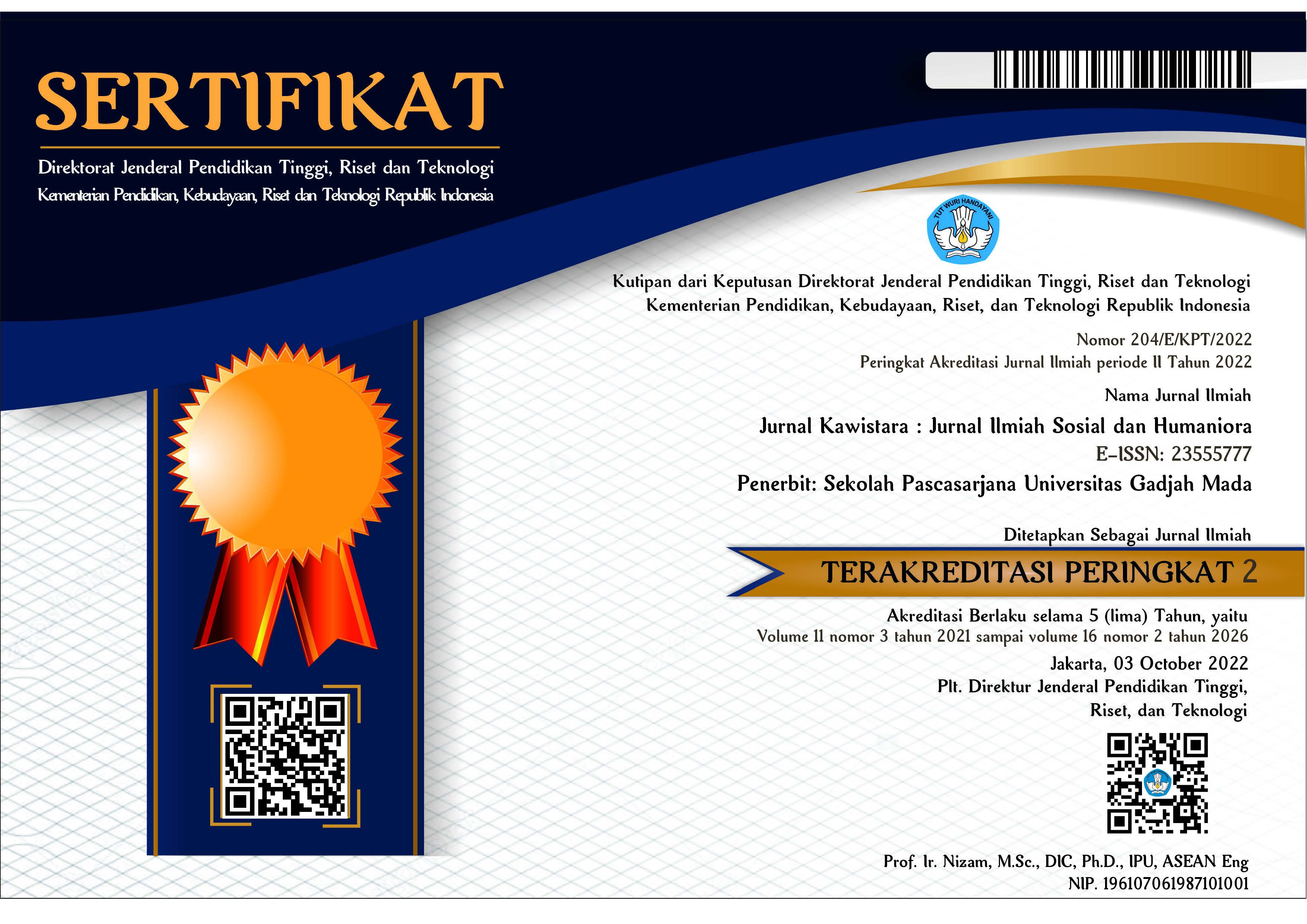DINAMIKA KEHIDUPAN KAUM AGAMAWAN ANALISIS WACANA KRITIS NOVEL LA FAUTE DE L’ABB É MOURET KARYA ÉMILE ZOLA
Hanafiah Azmi dan Teguh Basuki(1*)
(1) Jurusan Sastra Prancis Fakultas Ilmu Budaya Universitas Gadjah Mada
(*) Corresponding Author
Abstract
During the Second Empire, the development of educational field commenced the development in
other fields, such as economics and politics. These could not be separated from the influence of the
Church which at that time had a close relationship with the State. The emergence of a new social class,
Bourgeoisie, had changed the life style of the society which initially oriented from the Lord to secular.
They wanted a freedom of life from the control of the Church. The dominant role of the Church at first,
it gradually shifted along with increasing role of the new social class. This research discussed about the
life of the society during the Second Empire, represented by Émile Zola on the novel La Faute de l’Abbé
Mouret through the life of the clergyman. The problems which arised from himself (internal) and of the
surroundings (external), pushed the main character to leave his life in the Church and took off his status
as a clergyman.
Keywords
Full Text:
PDFArticle Metrics
Refbacks
- There are currently no refbacks.
Copyright (c)
Jurnal Kawistara is published by the Graduate School, Universitas Gadjah Mada.











